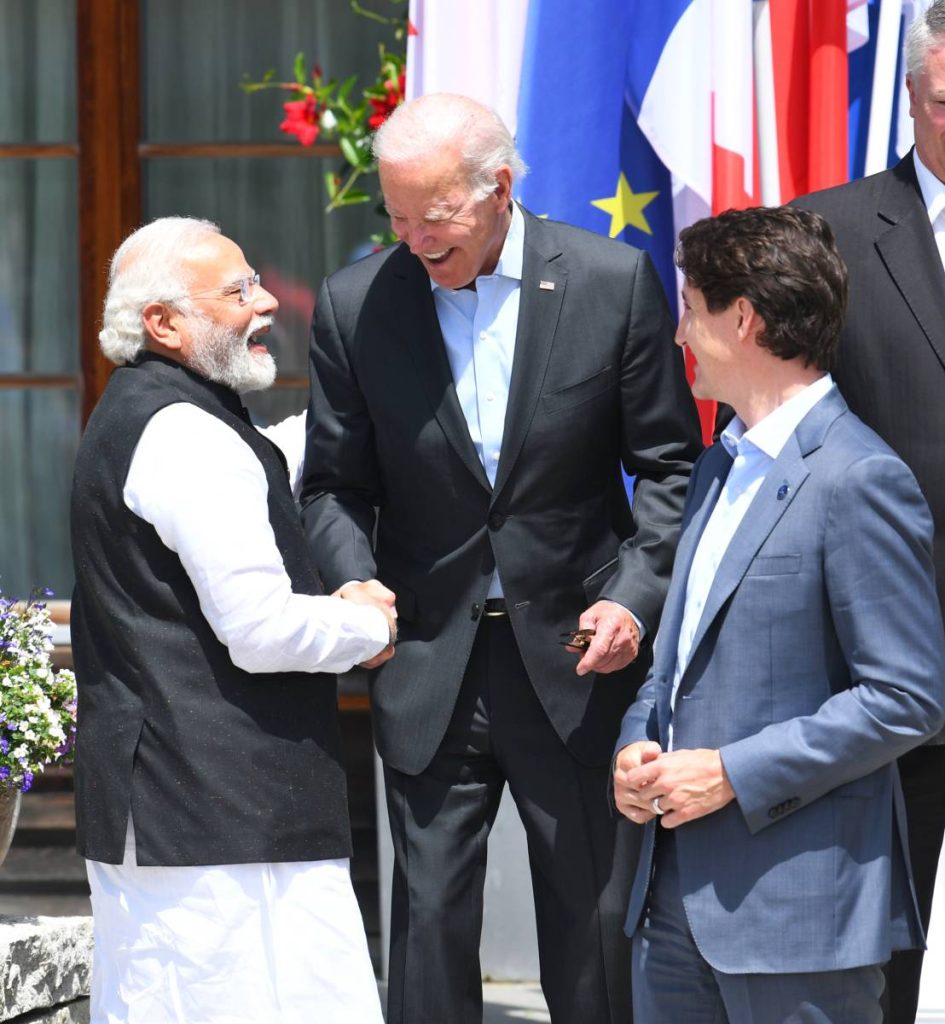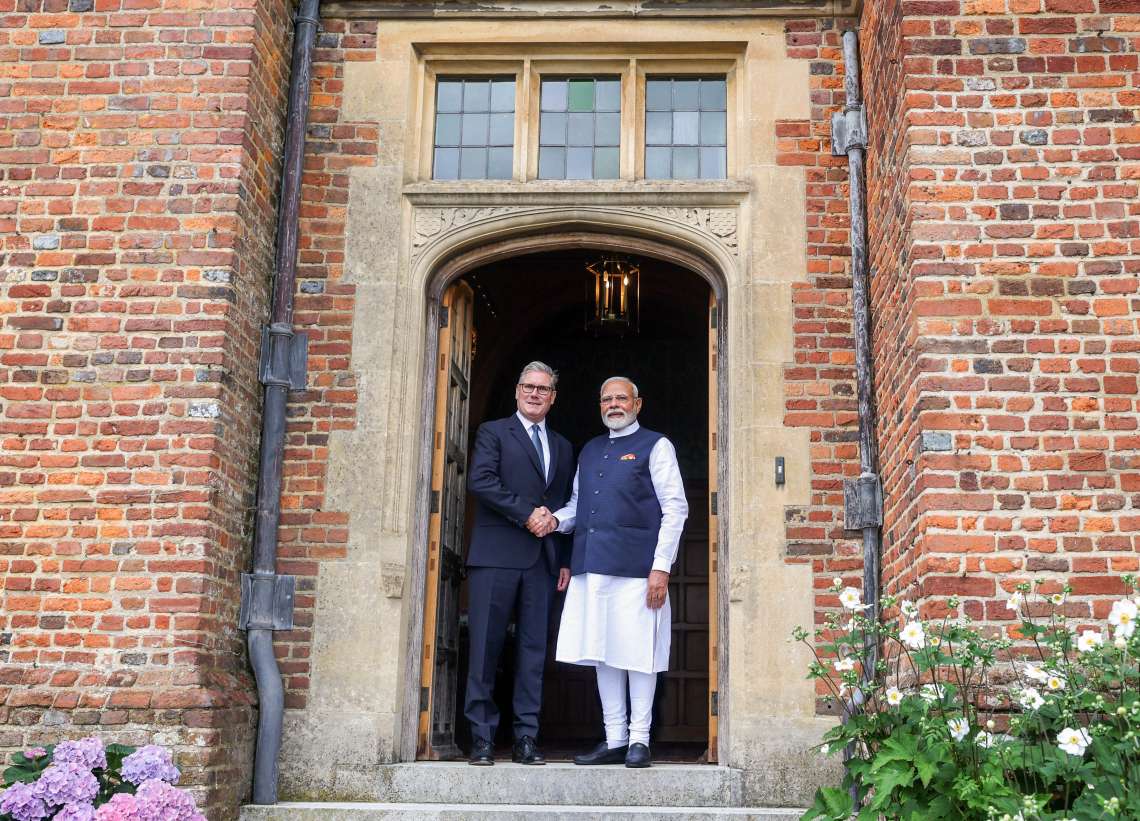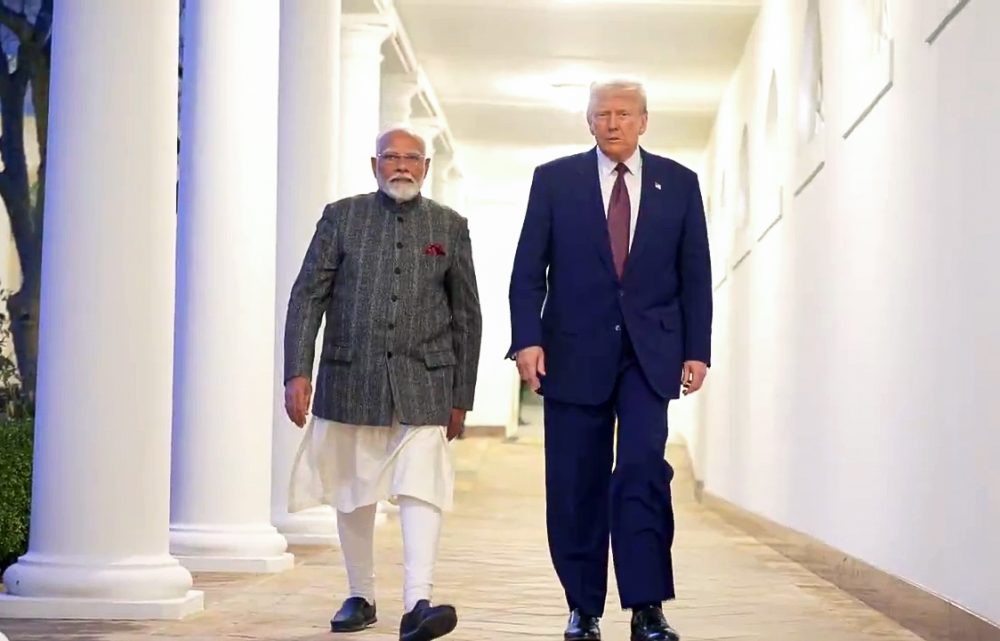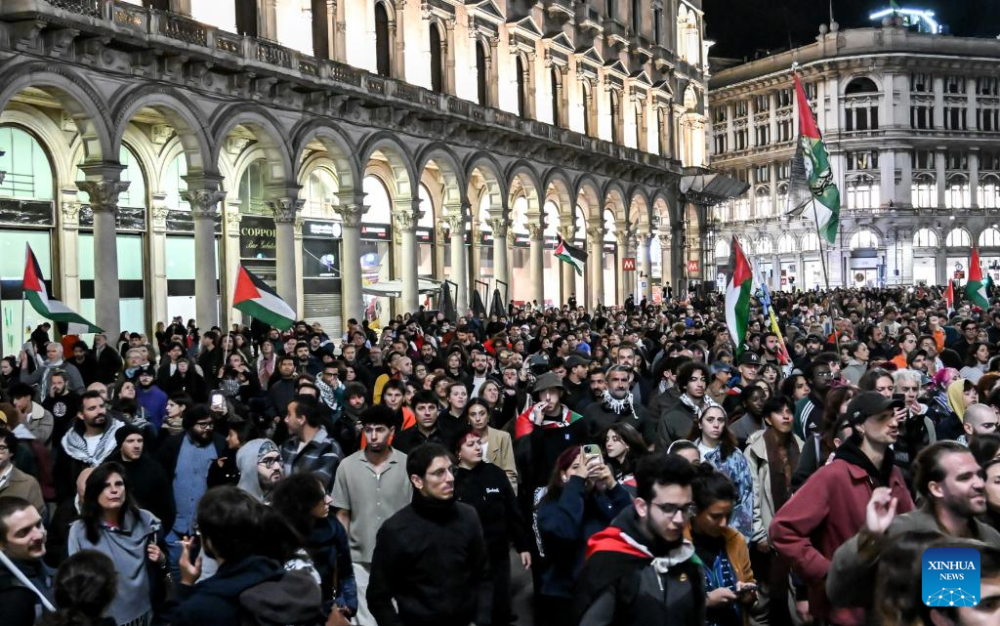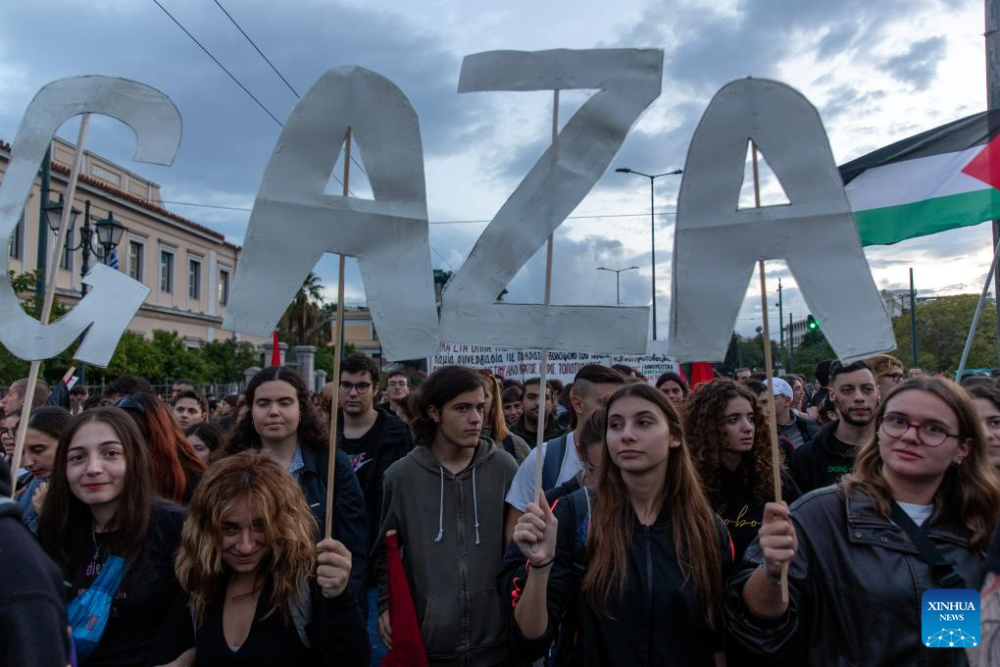A remarkable feat of India under the leadership of Prime Minister Modi is that Indo-US strategic partnership has been kept on a strong footing notwithstanding the Russia-Ukraine conflict in which the US and Europe have totally been on the side of Ukraine militarily, writes D.C. Pathak
The call for strategic autonomy of a democratic nation like India goes beyond safeguarding of national security and demands high resilience built on multi-prong capabilities in areas of defence, independent foreign policy, economic strength and internal cohesion as well as a capacity to influence world opinion.
All this would not be possible to achieve unless the country is governed by a leadership that has complete dedication to the nation, total personal integrity and a strong political will. Unlike his predecessors, Prime Minister Narendra Modi combines these distinct traits of a national leader and it is not a surprise therefore that the rise of India as a world power, as a fast developing economy and as a global counsel has attracted attention at home and abroad only in his time.
The speed with which the Modi regime carried out Army build up in Ladakh in response to Chinese aggressiveness there, the alacrity with which India embraced Quad and the impartial but positive stand PM Modi stuck to on Ukraine-Russia military confrontation show a successful tackling of external threats and a constructive approach to international relations that kept India’s national interests on top.
The safeguarding of internal security and national cohesion has become a new challenge because of concerted attempts of our adversaries to destabilise India by various means. While the world is in the midst of new conflicts geopolitically and is still to recover from the devastation caused to economy everywhere by the Covid pandemic, it is also witnessing the rise of ‘covert’ offensives in the form of terrorism, spread of radicalisation and a spurt in narcotics trade – affecting the democratic world in particular.
India as the world’s largest democracy has under Modi’s leadership taken bold initiatives to deal with these dangers and has justifiably earned recognition at various international fora as a major voice in favour of world peace and international cooperation against global threats.
The key components of the national strategy put in motion by Prime Minister Modi are not difficult to mark out. Their pursuit has been active and steady and that is why India has made distinct progress in playing its role as a major world power.
The framework of the strategy can be gleaned from the policies of the Modi regime that include development of bilateral relations promoting mutual security and economic interests, stepping up of military, diplomatic and financial measures to counter the moves of the identified enemy, constant effort to make India economically strong by placing new emphasis on self-dependence in the sphere of defence, close monitoring of attempts made by forces – internal and external – to destabilise the nation and a firm commitment to world peace.
It cannot be said that India does not have a national strategy since the policies of Modi government do not leave any strategic domain uncovered.
What certainly has to be kept from becoming public knowledge is the specificity of steps that the nation would take to deal with a particular threat or a hostile country.
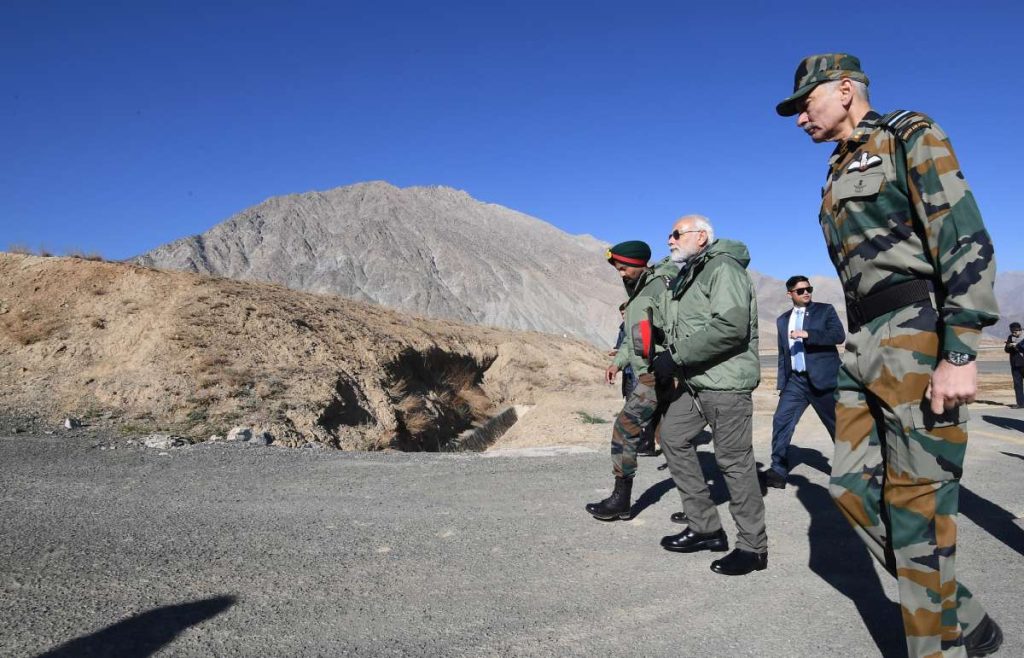
Warnings to the adversary through diplomatic and other means are in order for conveying an intent and creating a possible deterrent but what the actual response for countering a hostile neighbour would be, can not be detailed in public. ‘Experts’ outside the domain of governance who pressed for disclosure of national strategy and all aspects of security policy were in a way barking up the wrong tree.
More than the external threats to national security, the problem of lack of internal cohesion that is exploited by hostile forces to destabilise India is a particular cause for concern. Unfortunately this was aggravated by domestic politics. We are still debating the idea of India, 75 years after Independence, primarily because of the use of advocacy of secularism as a vote-catching instrument – the first ruling party of India chose to demonstrate its secularism by disowning any cultural Hindu legacy.
The framers of the Constitution had built secularism into the Indian democracy by prescribing ‘one man one vote’, discarding any distinctions of caste, creed and gender, providing for equal opportunities and protection of law to all and prohibiting the political executive from ruling with a denominational stamp.
The Constitution, however, was still amended to inject the adjective ‘secular’ for the state – apparently to attract the support of Muslim minority. Now in opposition, the Congress has questioned India being a nation on the plea that it was described by the Constitution as a Union of States and ignored the fact that the Preamble – carrying the very ethos of the Constitution – describes maintenance of unity and integrity of the ‘nation’ as a prime objective of the people of India.
The opposition, clearly driven by realpolitik, is stepping up on minority politics to counter the BJP’s special appeal to Hindus and in the process even projecting ‘nationalism’ as an unwanted concept.
There is also a new trend of civil society groups demanding that even on ‘strategic’ matters decision-making of the government – which is an exercise of the sovereign function of the state – must be ‘institutionalised’ by way of participation of non- governmental and private sectors.
In matters strategic, their inputs can be taken but decisions have to be in the exclusive domain of the state. The general approach on national security will be spelt out without announcing the sensitive details and there can be a critique of the stated policies.
But in an age of lobbying and outside influences working through social media and motivated NGOs, the sovereign right of the state to take strategic decisions totally on its own can not be questioned. Also, the question of law and order, particularly in the context of communal issues, demands that the focus should be on performance of the states and not on making it an issue between the Centre and the opposition.
What is emerging as a serious threat to internal security is the Pakistan ISI’s hand in pushing communal militancy in the direction of Islamic extremism in order to foster faith-based terrorism in India.
Communal discords have been a familiar facet of law & order in this country but Pakistan is trying to fish in the troubled waters of India by building a narrative that the ‘pro-Hindu’ Modi government is jeopardising the security of Muslim minority.
Pakistan is exploiting both Deobandi and Barelvi extremists for stepping up radicalisation. The recent cases of terror in the name of Islam at Amravati and Udaipur revealed links with ISI-backed radical organisations functioning under the cover of Popular Front of India (PFI) and its affiliates in various states.
The PFI significantly was found to be having a connection with the Students Islamic Movement of India (SIMI), the militant front of the pro-Pak Jamaate Islami that was banned in 2006 as well as links with Karachi-based Dawate Islami, known to be enjoying the patronage of ISI.
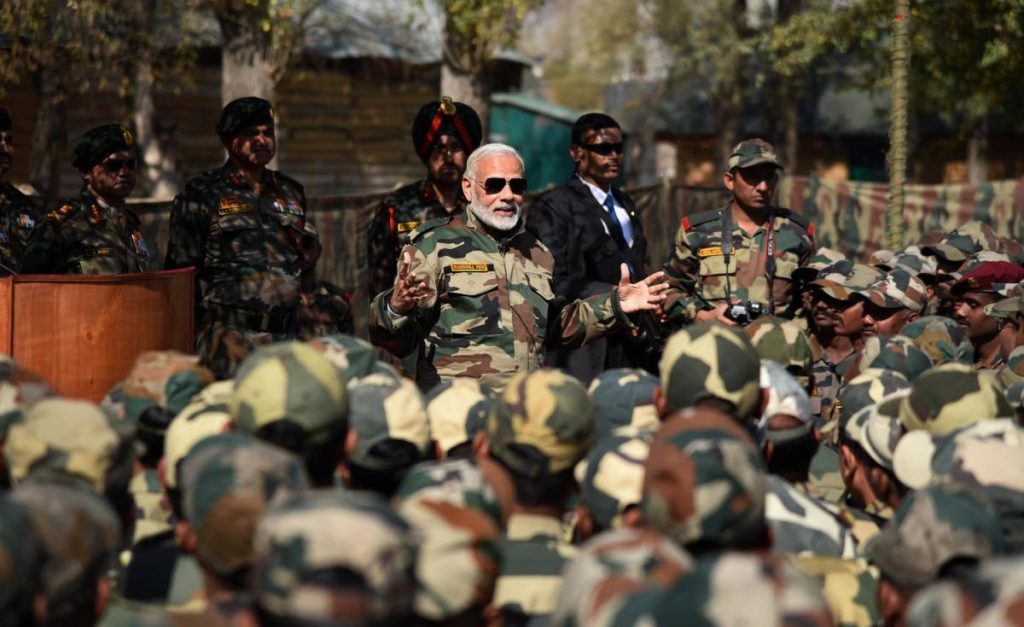
What is disquieting – even if it is not surprising – is the fact that social media is being surreptitiously used by Pakistan as an instrument for spreading radicalisation and as a new weapon of ‘proxy war’ against India.
Some of the accused in the above mentioned cases of terror violence perpetrated in the name of avenging the ‘insult’ to Prophet Mohammad allegedly caused by a BJP spokesperson during a TV debate, were in touch with a Pak-based WhatsApp group. Pakistan tried to use the platform of OIC for opposing the action of India with regard to Article 370 on Kashmir and also demanding ‘national apology’ from India for what the representative of a ‘political party’ might have said with regard to Prophet Mohammad – all this was done to project Muslims of India primarily as part of Ummah and uphold the right of Pakistan to interfere in the domestic affairs of India. A major threat to our internal security thus emanates from Pakistan at present.
It is in the Modi regime that a close watch is kept on the forces inside and outside of India spreading radicalisation in this country including the anti-national outfits like PFI with adverse foreign links.
The National Investigation Agency (NIA) carried out massive searches and raids in 15 states across the country in September after registering cases under the Unlawful Activities (Prevention) Act (UAPA) and arrested 45 people linked to PFI in the first sweep – the total arrests exceeding a hundred.
The organisation was swiftly banned while it was at its height in subverting internal security by recruiting agents for radical bodies like ISIS to carry out acts of terrorist violence in the name of Islam.
NIA was helped by the Enforcement Directorate (ED) in unearthing the foreign funding of the PFI through the Gulf and other countries.
Although the PFI was established in Kerala in Dec 2006 – soon after SIMI had been banned – to resume the task of preparing Muslim youth for a militant role on the lines of what SIMI had done through Indian Mujahideen, the state and the Central governments ignored it for political reasons.
It goes to the credit of Modi regime that all threats to internal security were probed and sternly dealt with regardless of the political cover the forces behind them might have used to hoodwink the government.
This is what guided the Modi government to look into the affairs of many NGOs which worked on illicit funds and encouraged anti-national activities. Think-tanks indulging in ‘politics by proxy’ have cropped up in recent years and some among them have been in active collaboration with anti-India lobbies created by the adversaries abroad.
It is largely with the aid from an extremely competent NSA that Prime Minister Modi has been able to counter all these invisible threats to national security.
Finally, it needs to be mentioned that the singular threat to India from the Sino-Pak axis has tested Modi government’s capabilities for combining requisites of defence, diplomacy and development to safeguard strategic autonomy.
And India has responded well on all fronts. Events in Afghanistan leading to the return of the Taliban Emirate in Kabul and the operation of China-Pakistan military alliance in Afghanistan, Kashmir and in fact at the global level, have added a new dimension to India’s national security.
The Sino-Pak axis is being countered externally as also on our borders and on our own territory as well since these adversaries had a certain capacity to indulge in subversive activities on our soil.
At present, the added challenge is to deal with the Chinese military and demographic build-up across the LAC, making it necessary to strengthen Indian presence all along the Chinese border with the objective of improving information flow and making joint civil-military response to any Chinese aggressiveness, more effective.
Pakistan is being kept in check by using the retaliatory threat of surgical strike as a deterrent. Internationally, India is actively supporting the multilateral forum Quad to maintain rule-based order in Indo-Pacific and also shield the Indian Ocean from Chinese designs.
To contain Pak-instigated terror threat from radicals, particularly after the return of Taliban Emirate in Afghanistan, our NSA convened a meeting of his counterparts from four Central Asian Republics, Russia and Iran-Pakistan and China not responding to the invitation as anticipated – to record their shared view in favour of an inclusive democratic dispensation in Afghanistan and against any encouragement to Islamic radicals in that country.
Foreign policy is a product of national security concerns and this initiative illustrated this. The handling of Indo-Soviet friendship following the launch of military operations by Russia in Ukraine has helped to keep up a credible image of India as a peace maker, uphold the right of India to receive defence and fuel supplies from Russia and prevent Russia from irreversibly drifting into the China’s camp at the cost of India.
A remarkable feat of India under the leadership of Prime Minister Modi is that Indo-US strategic partnership has been kept on a strong footing notwithstanding the Russia-Ukraine conflict in which the US and Europe have totally been on the side of Ukraine militarily.
What is geopolitically important, however, is the fact that the world opinion on balance is in favour of India’s stand for immediate cessation of armed confrontation and resumption of peace dialogue.
In short it can be said without any ambiguity that Prime Minister Modi has preserved India’s security and economic interests in a complex geopolitical scenario and consolidated the nation’s strategic autonomy in a short span of time.
(The writer is a former Director of Intelligence Bureau. The views expressed are personal)


